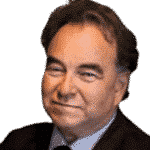The criticism of Donald Trump’s relentless attacks on the United States university system is both extensive and urgent. Major cuts to research funding, demands to discipline certain subjects and institutions, and the deportation of foreign students are just some of the hostile measures emanating from the Trump administration. Trump and his supporters clearly view universities as one of their primary adversaries, and it is evident that institutions in states that did not vote for Trump are most heavily targeted.
As many observers have pointed out, this policy is not only a threat to the fundamental liberal values inherent in the concept of “academic freedom,” but also economically reckless. Much of the innovation that has propelled the U.S. to its position as the world’s economic powerhouse stems from the high-quality research and education delivered by leading American universities.
Current global rankings of higher education institutions consistently show American universities occupying the top positions. A recent ranking revealed that of the 20 best universities in the world, approximately 15 are in the United States. Attacking these institutions amounts to destroying one of the country’s most vital – and most difficult to replace – assets.
While the criticism of Trump’s assault on universities is more than justified, one must also ask: How did the United States arrive at this juncture? How did a country widely regarded as one of the world’s most vital liberal democracies produce an electorate where such a large proportion chose to vote for Donald Trump, even for a second time?
We are speaking of a person who egged on a mob that violently attacked the central institution of the country’s democracy; who attempted to coerce election officials into manipulating the vote count; and who refused to concede defeat in a democratic election. This is a person who openly mocks the disabled, who programmatically lies, who boasts of sexually harassing women, who threatens allied countries militarily, and who is now exercising what must be seen as a personal vendetta against those he perceives as his political opponents.
However, there is reason to question whether American universities themselves bear some responsibility for this dreadful situation. For instance, one can point to the American political science profession, which is the world’s largest and most prominent, with the American Political Science Association boasting more than 11,000 members. While rankings of individual scholars are certainly debatable, there is no doubt that among, say, the fifty highest-ranked, a clear majority work at universities in the U.S. It is safe to say that it is not possible to find a single political scientist at any reputable American university who claims that Trump’s policies are beneficial to the country’s democracy.
On the contrary, an overwhelming majority are convinced of the opposite. The same can be said with great certainty about the economics profession in the United States. It is also the “largest and best,” dominating the prestigious Nobel Memorial Prize in Economic Sciences. Almost unanimously, the members of this academic profession assert that Trump’s economic policy, with its high tariffs and attempts to control the Central Bank, contradicts the most fundamental insights produced by economic research.
Given these facts, it is obvious that both economists and political scientists in the United States have failed miserably in conveying their fundamental insights to a very large segment of the electorate. To put it bluntly, the country with the world’s best political scientists and economists has not only elected its “worst” president, from the perspective of what constitutes quality of government, but also a president who pursues the “worst” trade policy economists can imagine. What are the reasons for this calamity? One answer is that American economists and political scientists have not taken sufficient responsibility for communicating their fundamental insights to the public.
The Scottish-American economist Angus Deaton, who has been at Princeton University since 1983 and received the Nobel Memorial Prize in Economic Sciences in 2015, has argued that despite their strong position, “the great American universities are not blameless. They have long been dangerously isolated from the society in which they are located and which ultimately supports them.” He pointed out that this isolation has led many with lower education to view universities as serving only an economic and social elite, while their relative economic and social situation has deteriorated significantly.
Another prominent figure who has highlighted this problem is the leading liberal writer Nicholas Kristof. In an article in The New York Times, he emphatically called for increased participation in the public debate by the American research community. He contended that career conditions for younger researchers only reward publication in the highest-ranking but most inaccessible academic journals, while informing the public debate about research results does not count. He argued that too many researchers had marginalised themselves and concluded his article by stating that “my onetime love, political science, is a particular offender and seems to be trying, in terms of practical impact, to commit suicide.”
There are, admittedly, several brilliant exceptions to this trend, including economists Paul Krugman and Joseph Stiglitz, as well as political scientists like Sheri Berman, Francis Fukuyama, and Yascha Mounk. However, having served as a visiting professor at four universities in the United States, after three years on the governing council of the American Political Science Association, and many more years in contact with numerous American colleagues, my impression is that the problems Deaton and Kristof highlight are real. Compared to Sweden, where I have spent most of my academic career, American colleagues are less visible in the public debate.
Bo Rothstein is Senior Professor of Political Science at the University of Gothenburg.

